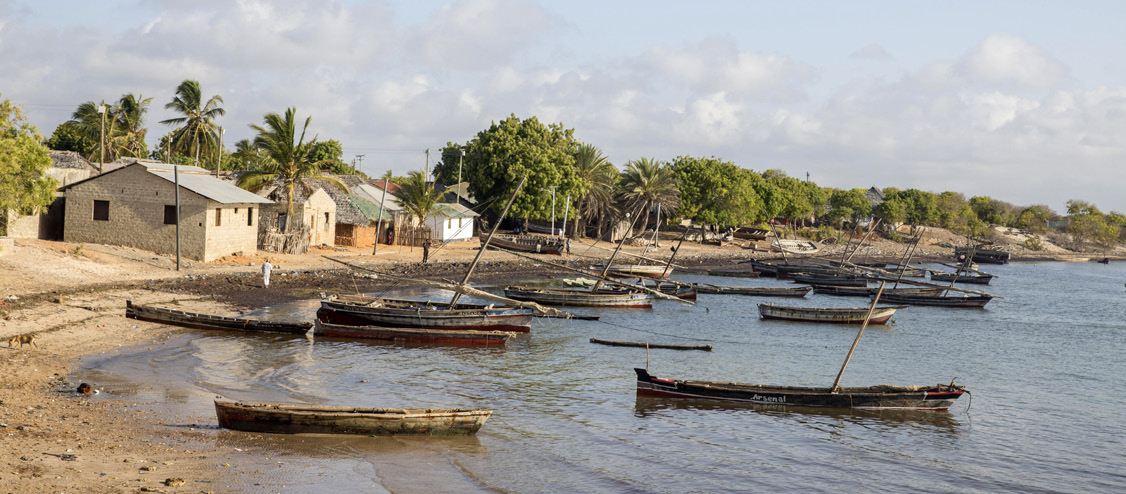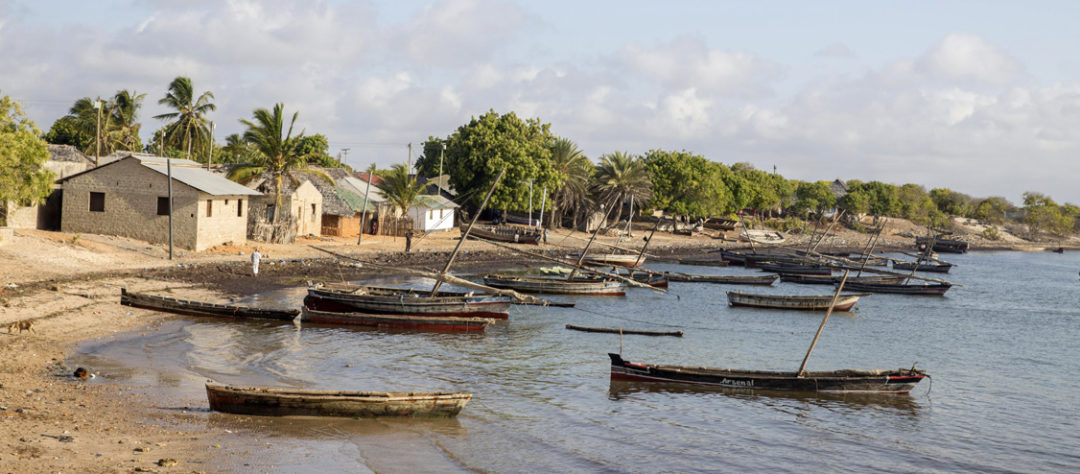Managers and practitioners have participated in an online training, webinar, or in-person training
%
Of the 105 countries and territories with coral reefs have received training
People access the website, reefresilience.org, annually
Where We Work
Coral reefs cover less than one tenth of one percent of the ocean, yet they are among the most biologically diverse, culturally significant and economically valuable ecosystems on the planet. The Reef Resilience Network (the Network) works around the world to accelerate solutions for improved conservation and restoration of coral reefs and reef fisheries.
Our Approach
Healthy coral reefs provide billions of dollars in food, jobs, recreational opportunities, coastal protection and other important goods and services to people around the world. However, 75 percent of the world’s reefs are impacted by pollution, unsustainable fishing practices and global climate change. To help marine managers on the front lines of coral reef conservation address these threats and mobilize action for improved coral health, the Network connects them with peers, global experts, tools and knowledge. More specifically, the Network:
- Synthesizes and shares the latest science and management strategies to keep busy managers informed and up-to-date.
- Connects managers to peers and experts to share resources and lessons learned to improve management decisions and inspire greater collaboration.
- Provides training, technical assistance and seed funding to help managers apply learned concepts and tools and catalyze action on-the-ground and in-the-water.
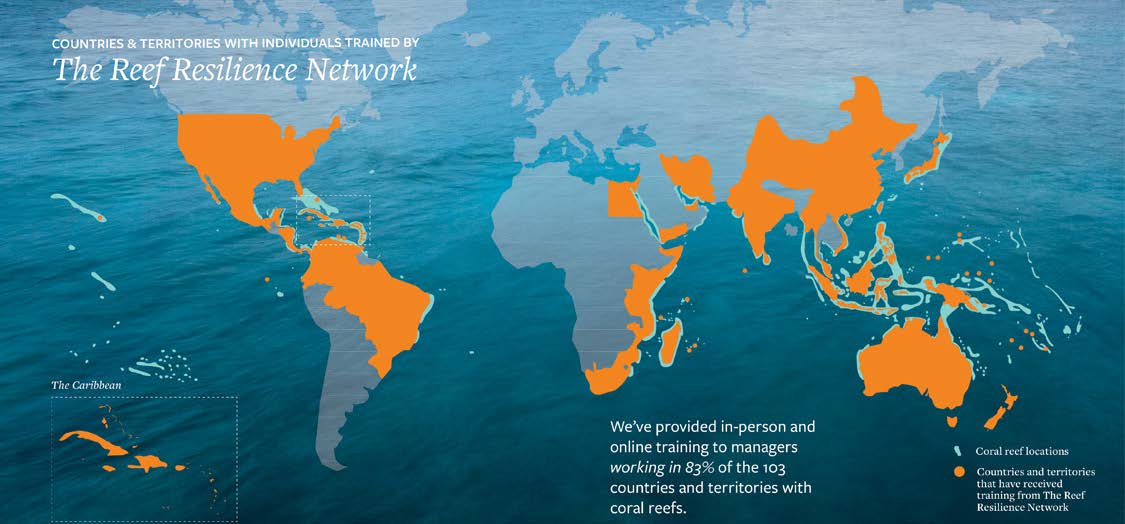
Our Accomplishments
The Network has provided in-person and online training for more than 47,000 managers working in 88 percent of the 105 countries and territories with coral reefs.
Our reach stretches even further through our train-the-trainer model and online connection activities, such as webinars and discussion forums, resulting in a better informed and networked cohort of marine resource managers.
Key highlights of our work include:
- Connected global managers and practitioners to peers and leading experts in coral-related fields through 57 e-newsletters, 73 interactive webinars on hot topics in reef management, and the Network Forum, an online discussion forum where managers can ask questions, share ideas and resources and provide support to one another.
- Worked with experts to synthesize the latest science and management strategies and share these products with managers via the Network website. More than 971,000 people visit this online toolkit annually to read 88 case studies highlighting successful management strategies, 214 summaries of cutting-edge resilience science articles and new featured content on topics including reef restoration, blue carbon, communication, aquaculture, reef mapping, community-based climate adaptation and coral reef fisheries.
- Designed and executed on-the-ground trainings for 1,744 managers to help them incorporate resilience concepts into their management strategies, apply cutting-edge science to resource management and encourage increased knowledge sharing within and across regions. Through these trainings, managers and practitioners from around the world have:
- Developed coral reef restoration plans for their jurisdiction.
- Developed strategic communication plans to promote fisheries rules and best practices, motivate pro-reef actions, promote the use of reef resilience strategies and reduce storm drain pollution.
- Developed and implemented response plans for coral bleaching, coral disease and invasive species.
- Applied new reef monitoring programs and protocols to inform resilience-based management strategies.
- Created a coral restoration area that incorporates resilience-based management principles.
- Developed a new reef resilience program that has shaped policy, made critical management decisions and created a coral bleaching monitoring and response plan.
- Incorporated reef resilience principles into existing spatial management plans to support the long-term health of coral reefs.
- Applied resilience science to the design of marine protected area networks.
- Built the capacity of people at all levels— managers, enforcement personnel, educators, policy-makers, students, community members, fishermen, tourism operators, and more—to strengthen community resilience and mobilize action for improved coral health.
- Applied new tools for community-based climate adaptation.
- Produced publishable journal and media articles.
When I started as a coral fellow, I knew I had to write a resilience strategy, so I took the Introduction to Reef Resilience course, then the advanced resilience and communication courses. These training opportunities have been invaluable to my job and career. As managers, we’re often told to read the literature, but we don’t have time. What I really love about the Reef Resilience Network is that it effectively walks the line between being technical and accessible.
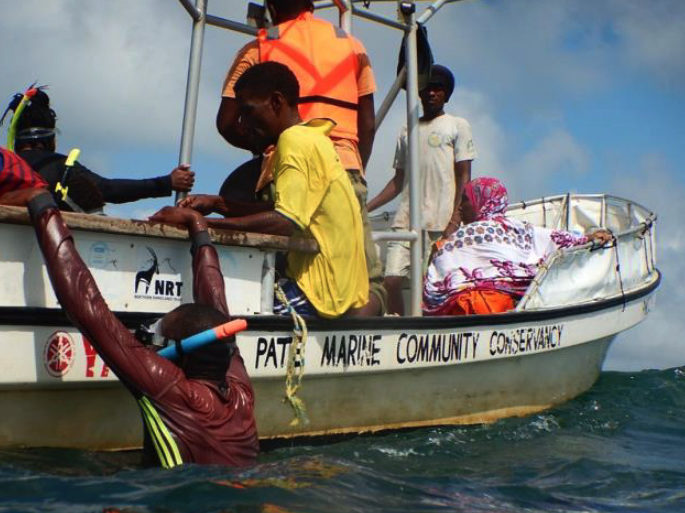
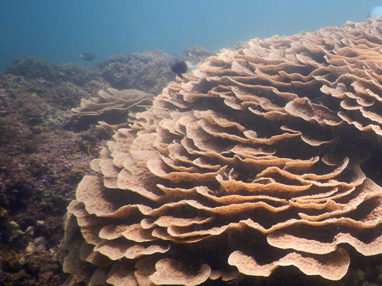
SUCCESS STORY: When Reef Building Goes Online
COVID has put a real strain on coral reefs as more people turn to the sea to feed their families and earn money – making coral reef conservation and restoration even more urgent. In Lamu, Kenya, where livelihood options are limited, more than 70% of the local communities depend on marine ecosystems. Coral reefs are particularly important, providing jobs linked to tourism activities and food and shelter for reef fish, octopus, and lobsters – which in turn provides food and income for Lamu’s people.
On any given day, Kenya’s reefs are under siege, threatened by overfishing, damaging fishing practices, large-scale development, unsustainable tourism, coral mining, changes in ocean chemistry and pollution, and warming seas due to climate change. In 1998, Kenya’s reefs took their biggest hit yet when warming waters caused a bleaching event that greatly compromised their health and integrity. Since the bleaching event, there are glimmers of hope with the recovery of some coral along the Kenya coast.
In light of this decline and hope of recovery, reef managers—scientists, resource managers, and community leaders—are looking for new solutions to boost reef health and provide food and alternative livelihood options for local communities. The Nature Conservancy’s (TNC) Reef Resilience Network and TNC Africa Program are working together to train local communities how to restore reefs which will support fisheries and community livelihoods.
Building Reefs Online?
A cohort of regional restoration practitioners was trained in reef restoration planning and best practices via a two-month mentored online course. Course participants developed a plan to restore half a hectare of reef within a locally managed marine area at Pate Marine Community Conservancy in Lamu. The project design incorporated low-cost and low-tech restoration methods to improve local fish populations, including the lobster fishery.
Following the online training, the cohort hosted a field-based workshop to engage stakeholders within the local fishing community in restoration practices. With hands-on support from the cohort, community members in Lamu began in-water work in January 2021 to build coral nurseries and artificial reef. The concrete structures will provide a surface for growing corals and also provide important habitat for fish and lobster; habitat that is largely absent from the degraded reef.
As work on the community-based restoration project in Lamu continues, the Reef Resilience Network and TNC Africa Program will provide on-going (virtual and in-person) support to the cohort, which includes scientists, managers, and community leaders from the County Government of Lamu, Kenya Marine and Fisheries Research Institute, Kenya Wildlife Service, and Pate Marine Community Conservancy—one of the conservancies under Northern Rangelands Trust-Coast that is leading this project on-the-ground in Lamu ensuring community participation and impactful implementation.
